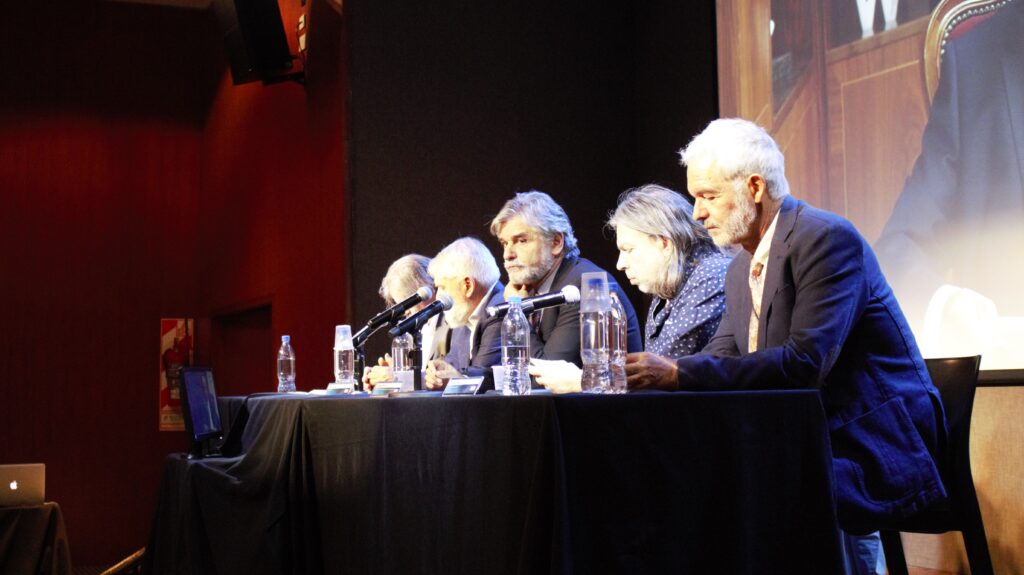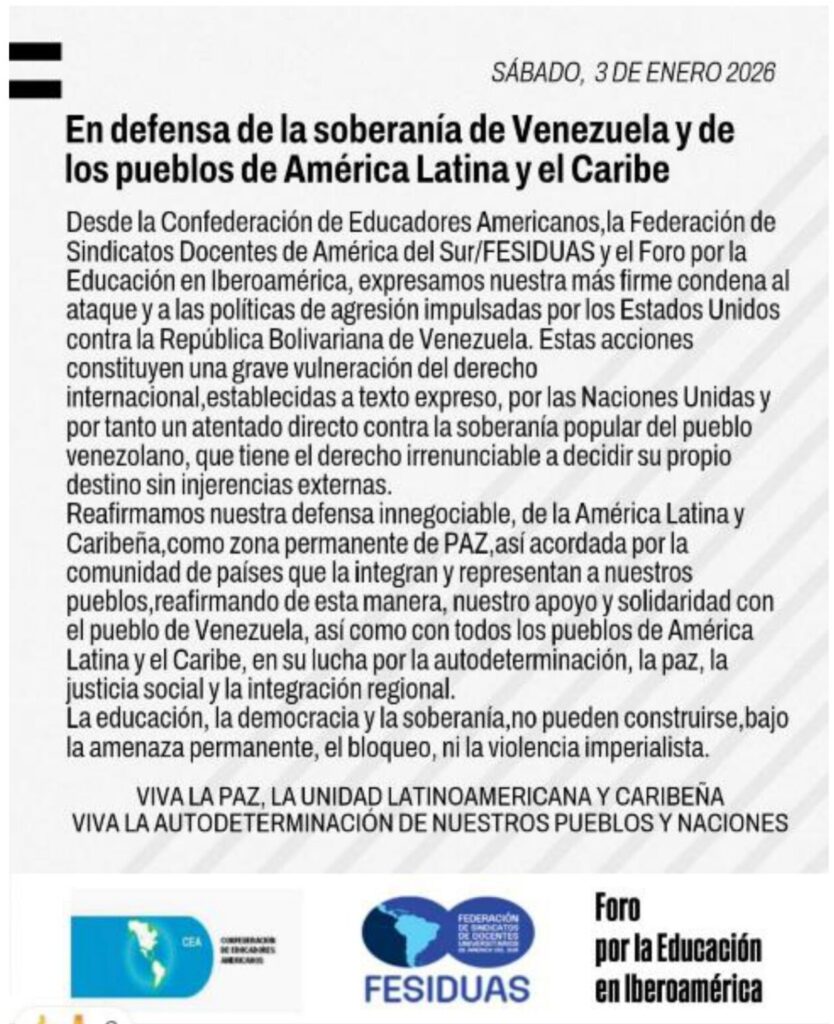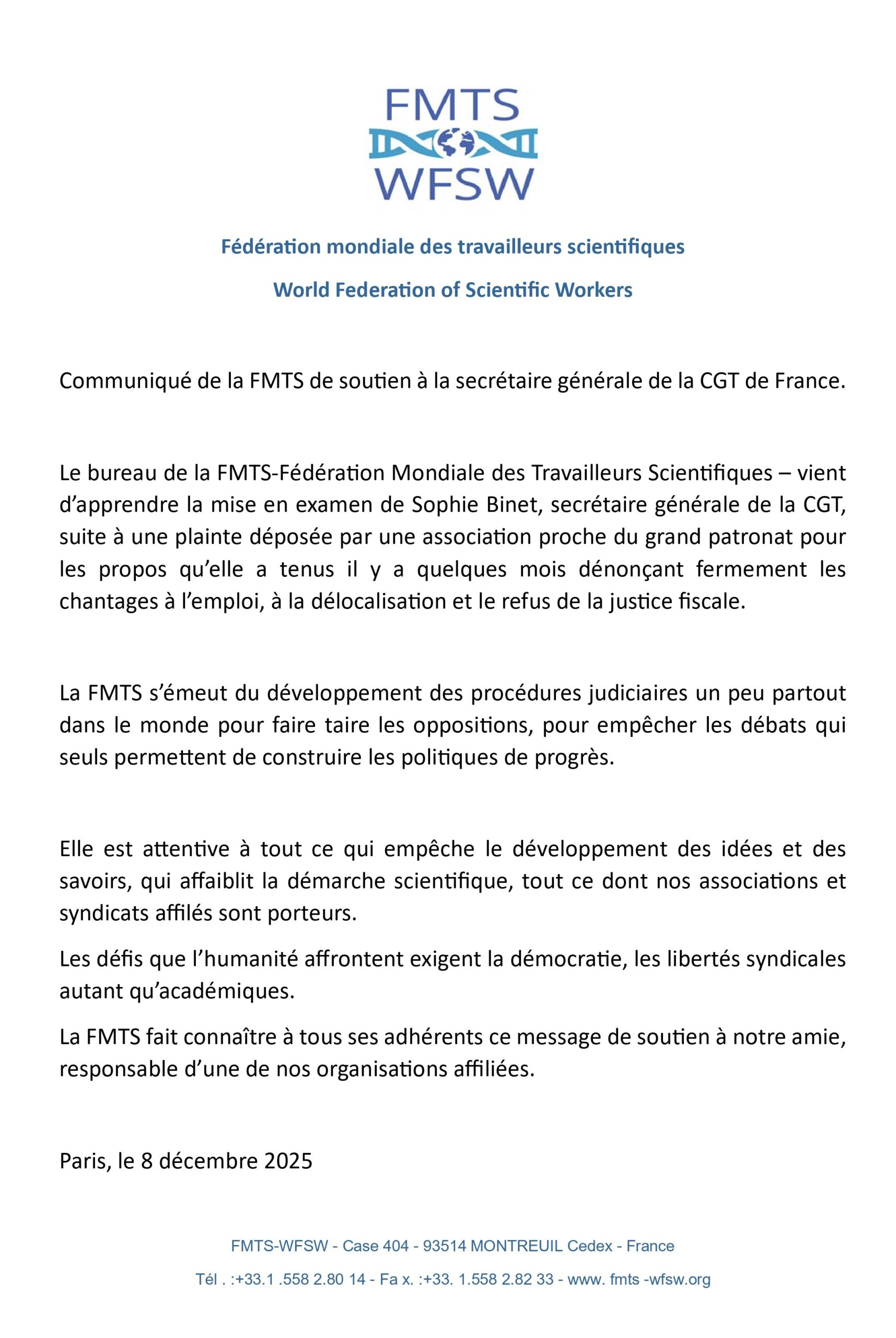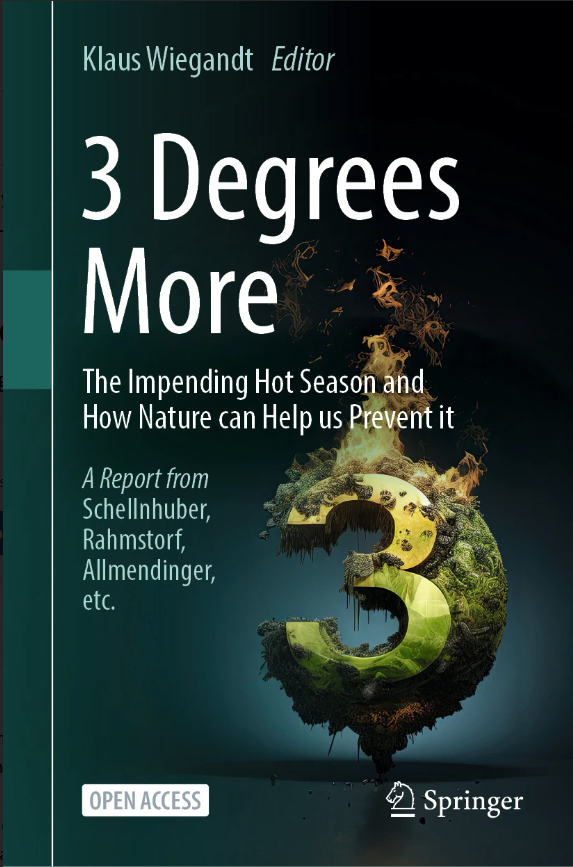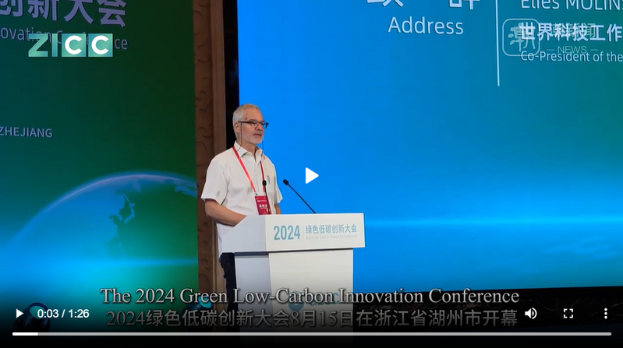International meeting of scientific workers in Buenos Aires
Last September 2022, the “Primer Encuentro Internacional de Trabajadoras y Trabajadores Científicos (EITC 2022, 1st International Meeting of Scientific Workers) was held in the Autonomous City of Buenos Aires, organized by the Federation of University Teachers (FEDUN), the Federation of University Teachers’ Unions of South America(FESIDUAS), the Ministry of Science, Technology and Innovation of the Republic of Argentina, the World Federation of Science Workers (WFSW) and the Latin American Federation of Science Workers (FedLatCi).
This event was attended by Daniel López, Subsecretary of Scientific Policies of the Ministry of Education of Argentina; the Minister of Science, Technology and Innovation, Daniel Filmes; Daniel Ricci, President of the Federation of University Teachers Unions of South America – FESIDUAS; Marcelo Magnasco, Vicepresident of the WFSW; Elies Molins, ICMAB-CSIC researcher, as co-president of the WFSW and other distinguished national and international guests. Different topics were discussed at different tables throughout the day around a main theme: the labour rights of scientific workers and the current legal frameworks of science in Ibero-America.
A Final Declaration of the International Meeting of Science Workers, can be read here: Final Declaration . The Ministry decided, due to the interest of the meeting, to publish a book with the content of the presentations and debates.
Find out more:
The full recording of the session: https://youtu.be/ZgNLNxozq-Q.
Program: https://fedun.com.ar/1o-encuentro-internacional-de-trabajadoras-y-trabajadores-cientificos/
Event FEDUN: https://fedun.com.ar/se-realizo-1o-encuentro-internacional-de-trabajadoras-y-trabajadores-cientificos/
*****
Final statement of the 1st international encounter of scientific workers EITC 2022
September 14, 2022 Buenos Aires, Argentina
The participants of the International Meeting of Scientific Workers, held in the city of Buenos Aires on September 14, 2022, after an extensive day of exhibitions and participatory debates, want to reaffirm to the world our conception of Scientific Research as a public good as a universal human right and as a duty of States, as established by the UNESCO Recommendation on Open Science of 2021 and the UNESCO Recommendation on the Status of Scientific Researchers, approved by the General Conference of the UNESCO 2017: “…recognizing that science, by virtue of the aforementioned recommendation on Science, is a global common good and that, in accordance with the Universal Declaration of Human Rights and the International Covenant on Economic, Social and Cultural Rights, is also an internationally recognized fundamental human right that must be accessible and benefit all the humanity”.
Based on the United Nations Sustainable Development Goals (SDGs) and the United Nations 2030 Agenda as our own goals because we believe that it is imperative to reverse the inequalities and injustices of the current reality that exposes millions of people in the world to institutional violence, hunger, poverty, discrimination and racism, marginalization and forced migration.
For this reason, we believe it is essential that science workers be guaranteed respect for the principles of freedom of association, fully recognizing their labor rights, decent working conditions, through the implementation of collective bargaining processes, arising from the institutionalized social dialogue, that ensure fair wages, stability and safe, healthy working conditions, free from all discrimination and violence with a gender perspective, being in turn part of institutional management.
Likewise, it is necessary that all nations develop solid institutional and national policies and legal frameworks in the field of open science to guarantee that knowledge, experience and scientific data are freely accessible to all and that its benefits are shared in an open way. universal and equitable. To this end, the capacity of science workers and their advances financed by the public budget must be supported and they must resume for the improvement of the quality of life of our people.
Science workers want to be part of the construction of a Bank of Peer Evaluators that functions as an agency for international cooperation in matters of science, technology, art and innovation capable of outlining a common agenda of knowledge and evaluation of scientific production, which at the same time allows us to connect in a fairer, more comprehensive and equitable way.
In short, we are committed to strengthening the ties between our nations while expressing ourselves to strengthen the transformative potential of joint work, allowing us to contribute to the construction of international scientific geopolitics through cooperation, integration and innovation.

